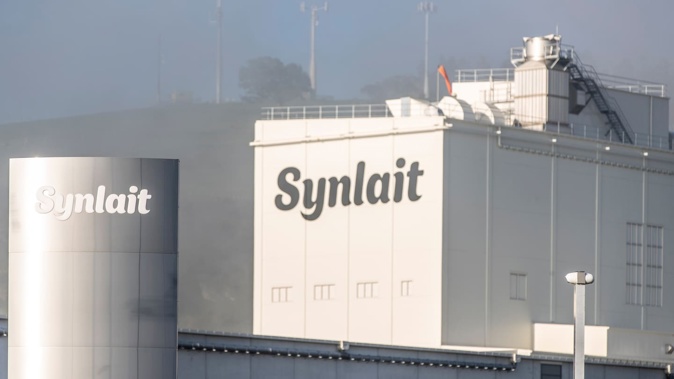
Synlait Milk has struck a deal to sell its loss-making factory at Pōkeno, and related assets, to America’s Abbott for US$178 million ($307m), with the proceeds to be used to pay down debt.
At the same time, the newly recapitalised Synlait reported that its net loss fell to $39.82m in the July 31 year, down from $182.11m a year earlier.
Included in the sale are the company’s Auckland sites (assets held at the blending and canning facility on Richard Pearse Drive and the warehouse facility on Jerry Green St), and associated inventory and leasehold arrangements.
Synlait chair George Adams said the sale to Abbott – already a major customer – was a “defining moment” for Synlait.
“The sale will strengthen the company’s financial position, with the proceeds used to significantly reduce debt,” Adams said.
“We are equally pleased Abbott will onboard the vast majority of our people who work in these assets at completion – that is a great outcome.
“This is a turning point we have fought hard for and are ready to embrace.”
Chief executive Richard Wyeth, who joined in May, said the sale was a much-needed step change for the dairy company.
“In short, this sale will deliver a stronger, simpler and more secure Synlait,” he said.
“It enables us to, in time, explore opportunities to diversify what we do and better enable Synlait to reach its full potential.”
Synlait’s majority shareholder, China’s Bright Dairy, had stated that it would vote in favour of the transaction.
Commenting on the result, Wyeth said numbers reflected the impact of previously advised “manufacturing challenges” at Dunsandel.
“These issues, which are now largely behind us, were complex and impacted our ability to continually deliver product on time, in spec and at scale.
“Were it not for these challenges, which resulted in costs, our result today would have reflected further progress in Synlait’s business recovery.”
The “adjusted” bottom line was a net profit of $0.8m (unadjusted ($39.8m).
There had been a 55% reduction in net debt from $551.6m to $250.7m.
Improvements in the trading performance in the year were reflected in unadjusted earnings before interest, tax, depreciation and amortisation (ebitda) increasing by $54.8m on 2024.
The ingredients business turned a $13.5m loss to a gross profit of $13.1m.
There was a 29% increase in Synlait’s advanced nutrition business’ gross profit to $95m.
Synlait’s milk price for the season just ended was $10.16/kg of milk solids – matching market leader Fonterra’s.
A2 Milk, which owns just under 20% of Synlait, will soon be lessening its reliance on Synlait as its sole source of infant formula.
The company recently completed the acquisition of an integrated nutritional manufacturing facility with two China label infant milk formula product registrations, also situated at Pōkeno.
A2 Milk said the acquisition was a significant step forward in the execution of its supply chain transformation strategy.
Synlait will continue making China-label formula production a2 Milk for some time to come, but a2’s increased manufacturing independence will be an issue.
Synlait’s share price has been showing signs of life after speculation surfaced in August that it would soon sell its loss-making facility at Pōkeno.
The plant – commissioned in 2019/20 – has been a millstone for the company as it has never functioned at full capacity and has always turned in a loss.
Synlait went through a major recapitalisation last year – which resulted in China’s Bright Dairy’s ownership going from 39% to 65.25% – after suffering a string of big losses.
Jamie Gray is an Auckland-based journalist, covering the financial markets and the primary sector. He joined the Herald in 2011.
Take your Radio, Podcasts and Music with you









